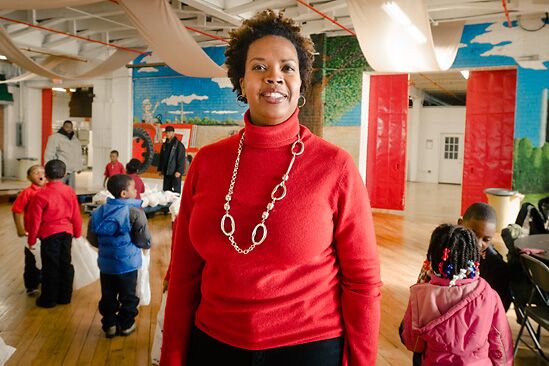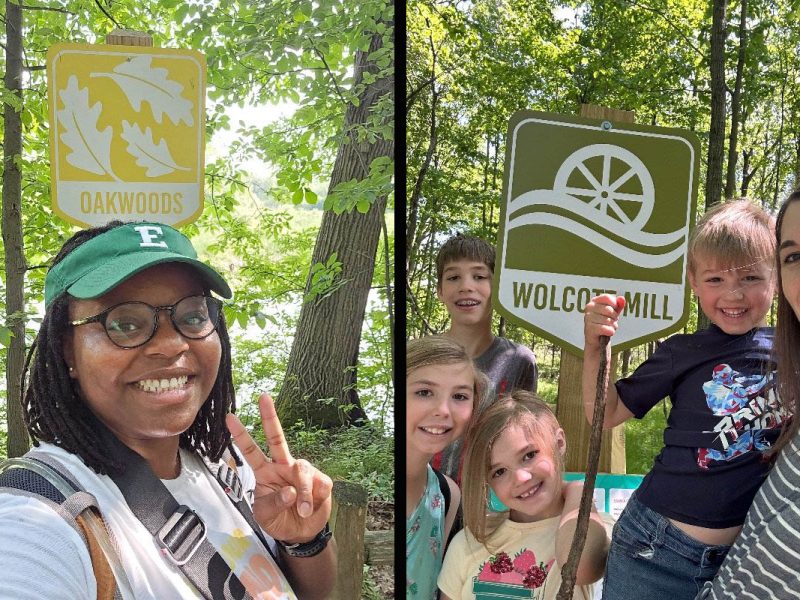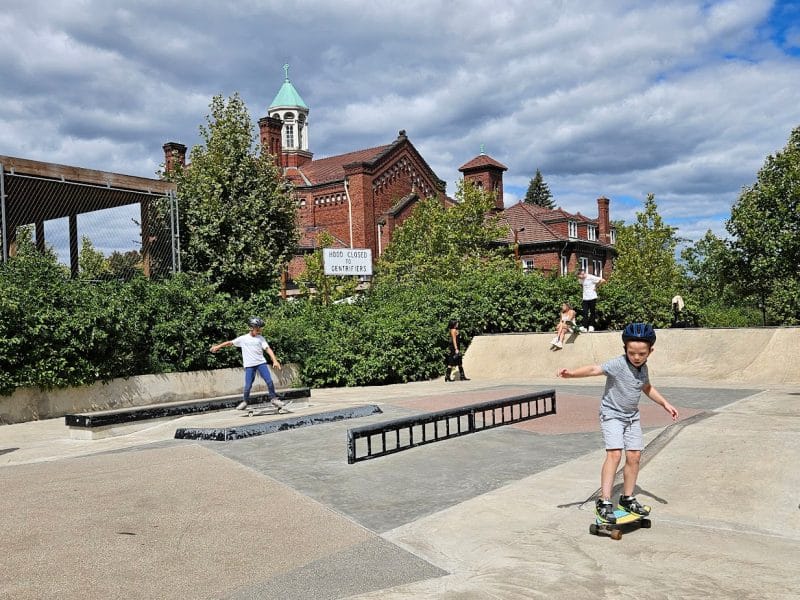Q&A: Winona Bynum of the Detroit Food Policy Council on upcoming conference, equity in food
Detroit Food 2017: Come Together takes place March 9 and 10 and will feature speakers and panels discussing how the food economy relates to issues of equity, health, policy, and more.

Despite all the progress made in Detroit’s food economy—expanded operations in Eastern Market, supports for urban farmers, and more—food security is still a major issue for many Detroit residents.
That’s why the seventh annual Detroit Food Policy Council’s conference is as vital as ever. Detroit Food 2017: Come Together takes place March 9 and 10 at the Benson and Edith Ford Conference Center in Detroit, and will feature speakers and panels discussing how the food economy relates to issues of equity, health, policy, and more.
Model D spoke with Winona Bynum, executive director of the Detroit Food Policy Council (DFPC), about the event and why folks should attend.
Why should those who care about the vitality of Detroit, but have limited knowledge about the food system, attend this conference?
The food system is Detroit’s third largest employer, and would be the second with just a 30 percent shift of food dollars toward local businesses and growers. It’s important to gather with people who care about the vitality of Detroit and those also interested in creating a sustainable, fair, and healthy food system to generate ideas, hear about new developments, and connect to each other and the larger food system.
This is the ideal place to learn about the broad spectrum of the food system and make connections to some amazing thinkers and doers. We will have sessions on everything from climate resiliency to preventing kidney disease. There’ll be sessions on food policy, equity for farm workers, and the state of the local food system. There’s so much available, and it’s going to be a really content-rich event.
When the Detroit Food Policy Council was formed in 2009, the Detroit City Council charged it to produce an annual food summit for the people of the city of Detroit. Why was this part of the food council’s mandate and why is holding a summit so important?
The Detroit Food Policy Council, since its inception, has had the City of Detroit’s Policy on Food Security, originally adopted by the city in 2008, as one of its guiding documents—which, coincidentally, we recently revisited and updated. The food security policy, both the original and updated version, has recommendations on many areas, one being citizen education. The annual food summit, Detroit Food, is one of our premier education events of the year.
Can you give us an idea of the range of people that attend?
Our event is traditionally one of the most diverse gatherings in the city. The range is pretty wide. We have funders, policymakers, growers, retailers, entrepreneurs, along with community members just interested in learning more about food.
In a nutshell, what should attendees expect?
A highly informative event that will engage people with the incredible variety of great work that is being done around a more just and equitable food system in Detroit. Also expect to enjoy delicious local foods and a welcoming crowd.
What aspect of the conference are you most looking forward to and why?
I’m looking forward to all of it. This is our biggest event every year and the DFPC staff get as much out of it as we put into planning it.
That being said, I’m really looking forward to our two keynote speakers. Mary Lee is fantastic. She’s the deputy director of PolicyLink, a national advocacy organization that works around racial equity and social justice issues. She guides its Center for Health Equity and Place work, and she’s also a member of the Los Angles Food Policy Council. Mary will be speaking on the power and promise of creating an equitable food system.
We also have a nationally known local speaker, Dr. Kami Pothukuchi, who is associate professor and chair of the Department of Urban Studies and Planning at Wayne State University and a founding, emeritus member of the Detroit Food Policy Council. Dr. Kami will be delivering the State of Food in Detroit address. Last year the address was given by Malik Yakini, executive director of the Detroit Black Community Food Security Network and also a founding member of the DFPC. I expect everyone who attends will leave energized and inspired to advance this work.
What are some anticipated take-aways for those who attend Detroit Food 2017?
That food work is diverse, challenging and always changing, but essential to the future of this city and this planet. That here, in Detroit, we are on the forefront of reimagining what a city can be, with food as a major part of that transformation. And that while the political climate may be challenging and somewhat divisive right now, events like this can help us all collaborate and cooperate to keep the work moving forward. Thus, the theme of Detroit Food this year: Come Together.
Will there be opportunities for attendees to engage in food system and food sovereignty work beyond the conference?
Yes, absolutely. Our work is year round, and we welcome community member’s engagement in one of our working committees or attendance at one of our meetings or events. And at Detroit Food 2017, people can make one-on-one connections with leaders in the food system as well as the DFPC itself, and given the wide range of the presentations we have lined up, attendees are likely to find the place that best lines up with their own interests and abilities to be able to contribute meaningfully.
Find more information about Detroit Food 2017: Come Together and how to register here.
This article is part of Michigan Nightlight, a series of stories about the programs and people that positively impact the lives of Michigan kids. It is made possible with funding from the W.K. Kellogg Foundation. Read more in the series here.





